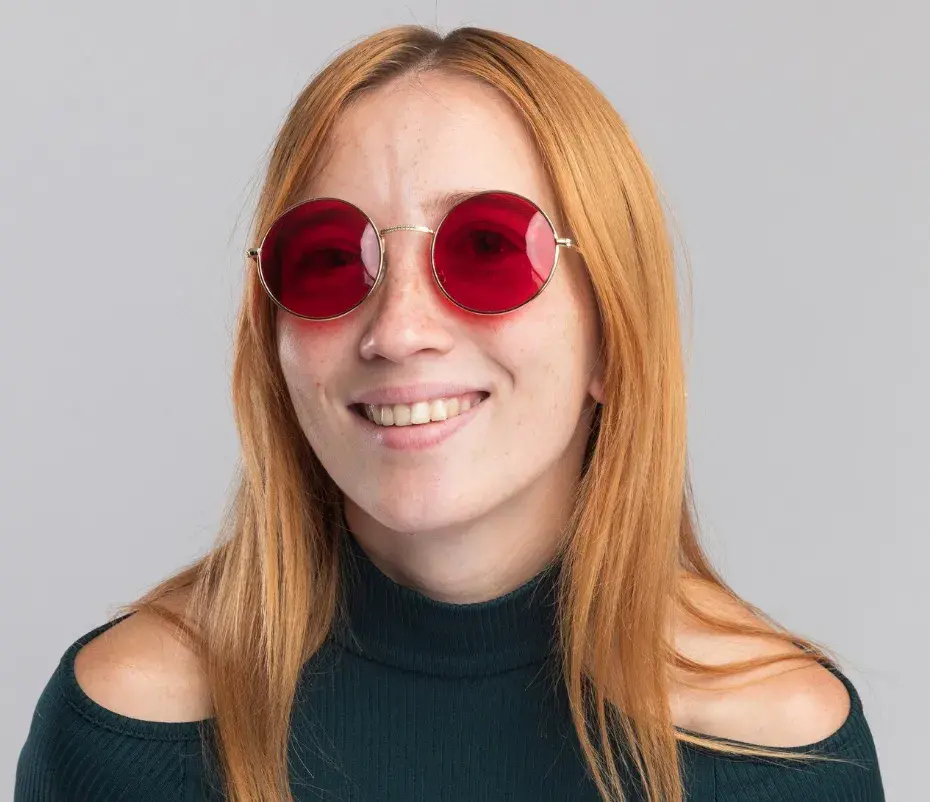Caregiver Visa Sponsorship in Rotterdam, Netherlands: Benefits, Advantages, and How to Apply
The Netherlands has become a top choice for healthcare professionals seeking global work opportunities.
Major cities like Rotterdam provide structured pathways for international workers to join their growing medical sector. Employers here often cover relocation costs, housing support, and employment authorization processes, making transitions smoother for qualified candidates.
Rotterdam’s healthcare industry faces high demand for skilled workers, creating urgent hiring needs. Positions range from entry-level assistants to specialized clinical roles, with salaries starting at €25,000 annually. Many facilities prioritize applicants with relevant education or certifications, offering training programs to bridge skill gaps.
This port city combines career growth with cultural diversity. Workers enjoy progressive labor policies, including insurance coverage and transportation allowances. Competitive pay scales reflect experience levels, with top-tier roles earning up to €60,000 yearly.
For Nigerian professionals, Rotterdam’s streamlined visa processes simplify overseas employment. Approved sponsorships allow quick integration into Dutch healthcare teams. The system emphasizes fair treatment and professional development, aligning with Europe’s high standards for medical services.
Understanding Caregiver Visa Sponsorship in Rotterdam
Dutch medical employers collaborate with international professionals through structured employment agreements. These partnerships enable foreign workers to legally provide care services while meeting strict national standards.
Employment Sponsorship Fundamentals
Healthcare institutions handle documentation for work permits and residency approvals. They verify candidates’ education levels, often requiring proof of completed training programs or equivalent certifications. Many roles demand at least a secondary school diploma, while specialized positions may need university degrees.
Company Assistance Programs
Approved sponsors guide applicants through every stage – from initial paperwork to final approvals. Typical support includes:
- Translation of academic records
- Background check coordination
- Health certification requirements
Processing timelines vary based on job type and candidate qualifications. Most complete authorization within 6 weeks when documentation meets Dutch immigration standards. Employers often prioritize applicants with relevant experience in care services to fill urgent hiring needs.
Benefits and Advantages for Caregivers in the Netherlands
The Dutch healthcare sector provides rewarding opportunities for international professionals through attractive compensation and supportive workplaces.
Competitive Salary and Comprehensive Benefits
Medical staff in this European country earn salaries that rank among the continent’s highest. Entry-level roles start at €25,000 annually, while specialists can reach €65,000. Employers frequently enhance these earnings with practical support:
- Fully furnished housing near work locations
- Daily meal provisions
- Health insurance covering family members
Many institutions provide airfare reimbursement and local transportation passes. These benefits help professionals focus on delivering quality services without financial stress.
Work-Life Balance and Inclusive Work Environment
Dutch medical facilities prioritize sustainable schedules. Full-time staff typically work 32-38 hour weeks with generous vacation allowances. One hospital administrator noted: “We design shifts around personal needs – patient care improves when our team feels rested.”
The industry celebrates diverse backgrounds through mentorship programs and language courses. Colleagues often describe their workplaces as collaborative spaces where cultural differences become strengths. Regular skills workshops help teams stay updated on the latest caregiving techniques.
This progressive approach extends beyond clinic walls. The country’s central European location allows easy travel for conferences and cross-border collaborations. Professionals gain exposure to innovative practices while building international networks.
How to Apply for Caregiver Visa Sponsorship in Rotterdam
Healthcare professionals seeking roles abroad find structured pathways in Dutch cities. Employers prioritize clear application systems to attract global talent. Proper preparation helps candidates meet essential criteria while showcasing their capabilities.
Application Process and Required Documentation
Medical institutions use specialized platforms to list openings with employment support. Candidates should prepare these key materials:
- Academic records matching position requirements
- Work history verification from previous employers
- Language certificates showing basic communication skills
Entry-level roles often need one year of hands-on practice. Senior positions require advanced degrees and five years of specialized service. A recruitment coordinator advises: “Complete digital forms carefully—missing details delay approvals.”
Tips for Crafting an Effective CV and Application
Highlight practical abilities over generic job descriptions. Use action verbs like “managed” or “implemented” to demonstrate impact. Include certifications in first aid or patient care techniques.
Tailor each submission to the specific role. For clinical specialists, emphasize leadership experience. Assistants should focus on daily support tasks and teamwork. Most employers respond within 15 days to well-prepared candidates.
Current hiring trends favor applicants who combine formal education with real-world skills. Updating professional profiles regularly increases visibility on recruitment portals. Successful candidates often receive relocation guidance before starting their contracts.
Exploring Additional Opportunities in Dutch Healthcare
The Netherlands’ medical field thrives on specialization, offering roles that blend clinical expertise with emerging technologies. Professionals find varied paths matching their skills and ambitions across urban centers.
Diverse Job Roles in Healthcare and Nursing
Dutch hospitals and clinics seek specialists in high-demand areas:
- Child Therapists (€40,000-60,000) addressing youth mental health needs
- Clinical Pharmacists (€45,000-65,000) managing medication protocols
- Nurse Specialists (€50,000-60,000) leading patient care teams
Major cities like Amsterdam and Maastricht host specialized facilities. A healthcare recruiter notes: “We match qualifications with community needs – advanced degrees open doors to leadership roles.”
Industry Trends and Qualification Standards
Employers prioritize candidates with bachelor’s degrees and relevant certifications. Many provide accelerated 1-month training programs for:
- Digital health platform operations
- Pediatric care techniques
- Pharmaceutical compliance standards
Technology integration reshapes daily workflows, creating hybrid roles requiring both medical knowledge and technical skills. Hiring processes often conclude within 15 days for qualified applicants, reflecting urgent staffing needs.
Conclusion
International healthcare professionals discover life-changing work prospects through Dutch employment programs. Competitive salaries between €25,000 and €65,000 reflect the value placed on skilled medical staff, with comprehensive support packages covering housing and insurance needs.
The streamlined application process removes common barriers for qualified candidates. Employers prioritize clear documentation and relevant experience, accelerating hiring decisions. Many institutions assist with relocation logistics, helping professionals transition smoothly into their new roles.
Work environments emphasize balance through flexible schedules and skill-building initiatives. Teams benefit from cross-cultural collaboration, with language training available to strengthen communication. This approach fosters professional growth while maintaining high service standards.
Strategic European locations enable access to advanced technologies and regional networking events. Professionals gain exposure to innovative care methods that enhance their career profiles. Ongoing demand in this field ensures continued opportunities for those meeting education and qualification requirements.
For medical workers seeking meaningful roles abroad, these programs offer structured pathways to success. They combine financial stability with personal development in a country known for progressive healthcare solutions.
For more information, explore the official visa website mentioned in this article:
You will be redirected to another website
FAQ
What salary can healthcare professionals expect in Rotterdam?
Salaries for roles in medical support typically range between €30,000 and €60,000 annually, depending on experience. Benefits often include health insurance, paid leave, and relocation assistance for eligible candidates.
Are there opportunities for career growth beyond caregiving roles?
Yes. The Dutch healthcare industry offers diverse roles, including nursing specialists, pediatric support staff, and administrative positions. Many employers prioritize internal promotions and skill development programs.
What qualifications are required to apply for medical roles in the Netherlands?
Applicants typically need a recognized diploma or degree in nursing, healthcare, or a related field. Fluency in English is essential, while Dutch language skills are often preferred. Relevant experience strengthens candidacy.
How long does the immigration process take for medical staff?
Processing times vary but generally take 2–4 months. Employers assist with visa applications, residency permits, and meeting Dutch immigration standards to streamline the procedure.
Do hiring agencies assist with housing or relocation?
Many organizations provide relocation packages, including temporary housing, legal support, and guidance on local registration. Specific offerings depend on the employer and role requirements.
Is prior experience in pediatric care mandatory for child-focused roles?
While not always mandatory, experience with children or specialized training in pediatric nursing enhances applications. Employers may require background checks and certifications for such positions.
What makes Rotterdam an attractive location for healthcare workers?
The city offers a multicultural environment, advanced medical facilities, and a strong emphasis on work-life balance. Public transportation and proximity to other European cities add to its appeal.
Published on: 4 de July de 2025

Galena Garcia
Galena Garcia is the visionary behind Portal Santista. With a degree in Business Administration and a specialization in Marketing for the financial sector, Galena brings years of experience from the corporate world, where she developed a deep passion for helping both businesses and individuals thrive financially.
Driven by a desire to share her knowledge with a broader audience, she founded Portal Santista—an online space dedicated to providing useful, practical, and reliable information on finance, marketing, and business management.
Outside of her professional life, Galena is an animal lover, a devoted reader of romantic novels, and loves spending fun moments with her nieces and nephews. Her unique blend of technical expertise and genuine care for people is what makes Portal Santista such a special place.






